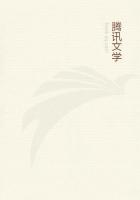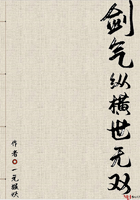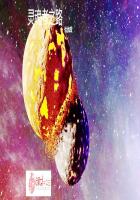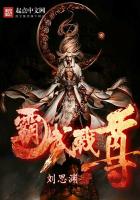The Judge has again addressed himself to the Abolition tendencies of a speech of mine made at Springfield in June last. I have so often tried to answer what he is always saying on that melancholy theme that I almost turn with disgust from the discussion,--from the repetition of an answer to it. I trust that nearly all of this intelligent audience have read that speech. If you have, I may venture to leave it to you to inspect it closely, and see whether it contains any of those "bugaboos" which frighten Judge Douglas.
The Judge complains that I did not fully answer his questions.
If I have the sense to comprehend and answer those questions, I have done so fairly. If it can be pointed out to me how I can more fully and fairly answer him, I aver I have not the sense to see how it is to be done. He says I do not declare I would in any event vote for the admission of a slave State into the Union.
If I have been fairly reported, he will see that I did give an explicit answer to his interrogatories; I did not merely say that I would dislike to be put to the test, but I said clearly, if I were put to the test, and a Territory from which slavery had been excluded should present herself with a State constitution sanctioning slavery,--a most extraordinary thing, and wholly unlikely to happen,--I did not see how I could avoid voting for her admission. But he refuses to understand that I said so, and he wants this audience to understand that I did not say so. Yet it will be so reported in the printed speech that he cannot help seeing it.
He says if I should vote for the admission of a slave State I would be voting for a dissolution of the Union, because I hold that the Union cannot permanently exist half slave and half free.
I repeat that I do not believe this government can endure permanently half slave and half free; yet I do not admit, nor does it at all follow, that the admission of a single slave State will permanently fix the character and establish this as a universal slave nation. The Judge is very happy indeed at working up these quibbles. Before leaving the subject of answering questions, I aver as my confident belief, when you come to see our speeches in print, that you will find every question which he has asked me more fairly and boldly and fully answered than he has answered those which I put to him. Is not that so?
The two speeches may be placed side by side, and I will venture to leave it to impartial judges whether his questions have not been more directly and circumstantially answered than mine.
Judge Douglas says he made a charge upon the editor of the Washington Union, alone, of entertaining a purpose to rob the States of their power to exclude slavery from their limits. I undertake to say, and I make the direct issue, that he did not make his charge against the editor of the Union alone. I will undertake to prove by the record here that he made that charge against more and higher dignitaries than the editor of the Washington Union. I am quite aware that he was shirking and dodging around the form in which he put it, but I can make it manifest that he leveled his "fatal blow" against more persons than this Washington editor. Will he dodge it now by alleging that I am trying to defend Mr. Buchanan against the charge? Not at all. Am I not ****** the same charge myself? I am trying to show that you, Judge Douglas, are a witness on my side. I am not defending Buchanan, and I will tell Judge Douglas that in my opinion, when he made that charge, he had an eye farther north than he has to-day. He was then fighting against people who called him a Black Republican and an Abolitionist. It is mixed all through his speech, and it is tolerably manifest that his eye was a great deal farther north than it is to-day. The Judge says that though he made this charge, Toombs got up and declared there was not a man in the United States, except the editor of the Union, who was in favor of the doctrines put forth in that article. And thereupon I understand that the Judge withdrew the charge. Although he had taken extracts from the newspaper, and then from the Lecompton Constitution, to show the existence of a conspiracy to bring about a "fatal blow," by which the States were to be deprived of the right of excluding slavery, it all went to pot as soon as Toombs got up and told him it was not true. It reminds me of the story that John Phoenix, the California railroad surveyor, tells. He says they started out from the Plaza to the Mission of Dolores. They had two ways of determining distances. One was by a chain and pins taken over the ground. The other was by a "go-it-ometer,"--an invention of his own,--a three-legged instrument, with which he computed a series of triangles between the points. At night he turned to the chain-man to ascertain what distance they had come, and found that by some mistake he had merely dragged the chain over the ground, without keeping any record. By the "go-it-ometer," he found he had made ten miles. Being skeptical about this, he asked a drayman who was passing how far it was to the Plaza. The drayman replied it was just half a mile; and the surveyor put it down in his book,--just as Judge Douglas says, after he had made his calculations and computations, he took Toombs's statement. I have no doubt that after Judge Douglas had made his charge, he was as easily satisfied about its truth as the surveyor was of the drayman's statement of the distance to the Plaza. Yet it is a fact that the man who put forth all that matter which Douglas deemed a "fatal blow" at State sovereignty was elected by the Democrats as public printer.
Now, gentlemen, you may take Judge Douglas's speech of March 22, 1858, beginning about the middle of page 21, and reading to the bottom of page 24, and you will find the evidence on which I say that he did not make his charge against the editor of the Union alone. I cannot stop to read it, but I will give it to the reporters. Judge Douglas said:

